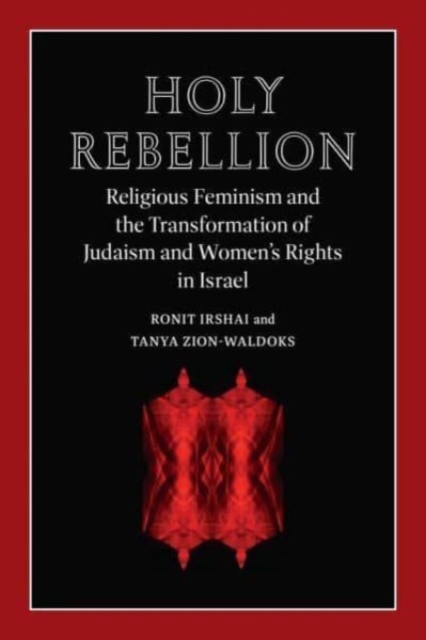
Holy Rebellion : Religious Feminism and the Transformation of Judaism and Women's Rights in Israel Paperback / softback
by Ronit Irshai, Tanya Zion-Waldoks
Part of the Brandeis Series on Gender, Culture, Religion, and Law series
Paperback / softback
Description
An in-depth study of Jewish religion and law in Israel from a gendered perspective. In Holy Rebellion, Ronit Irshai and Tanya Zion-Waldoks examine social change in Israel through a rigorous analysis of the shifting entanglements of religion, gender, and law in times of cultural transformation.
They explore theological, halakhic, political, and sociological processes and show how they interact with one another in ways that advance women’s rights, as well as how they are met with a conservative backlash in the discourses and actions of the rabbinic establishment.
Irshai and Zion-Waldoks build on legal philosopher Robert Cover’s 1982 paper “Nomos and Narrative,” which explained how cultural narratives and legal norms are reciprocally enforced or transformed.
Expanding on this notion, Irshai and Zion-Waldoks propose a “narrative ripeness test,” an analytic tool that evaluates the relationship between culture and law to assess how and when change within a minority cultural community may be accelerated or hindered by state intervention. Religious feminisms are emerging around the world, not solely in Israel, and this book helps elucidate how they create enduring and radical change.
Many liberal states are also confronting an illiberal backlash and question the multicultural framework’s ability to serve the needs of minorities within minorities.
Therefore, the theoretical framework offered by Irshai and Zion-Waldoks is applicable beyond the Israeli case, even as it offers deeper insights into an Israeli society in turmoil.
Information
-
Pre-Order
- Format:Paperback / softback
- Pages:378 pages
- Publisher:Brandeis University Press
- Publication Date:16/05/2024
- Category:
- ISBN:9781684582099
Other Formats
- Hardback from £91.55
Information
-
Pre-Order
- Format:Paperback / softback
- Pages:378 pages
- Publisher:Brandeis University Press
- Publication Date:16/05/2024
- Category:
- ISBN:9781684582099






